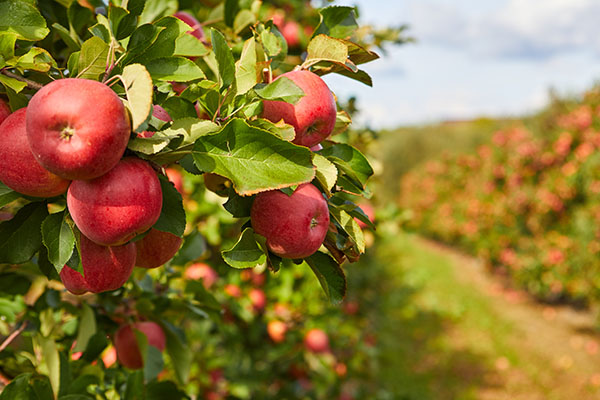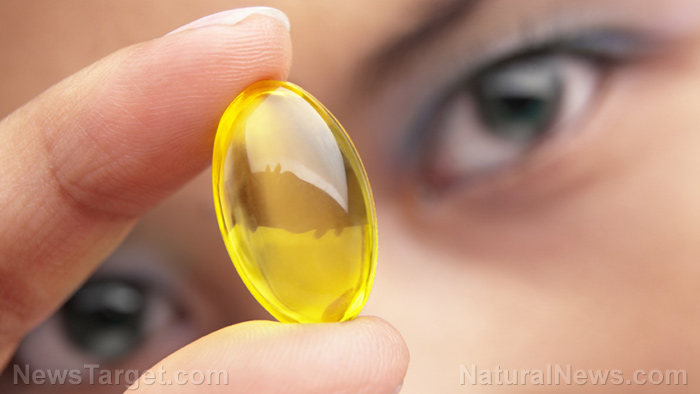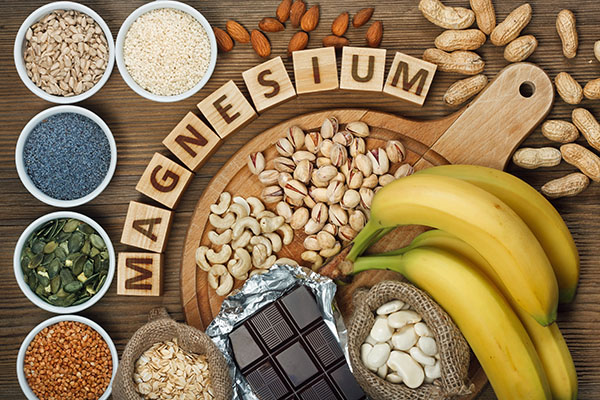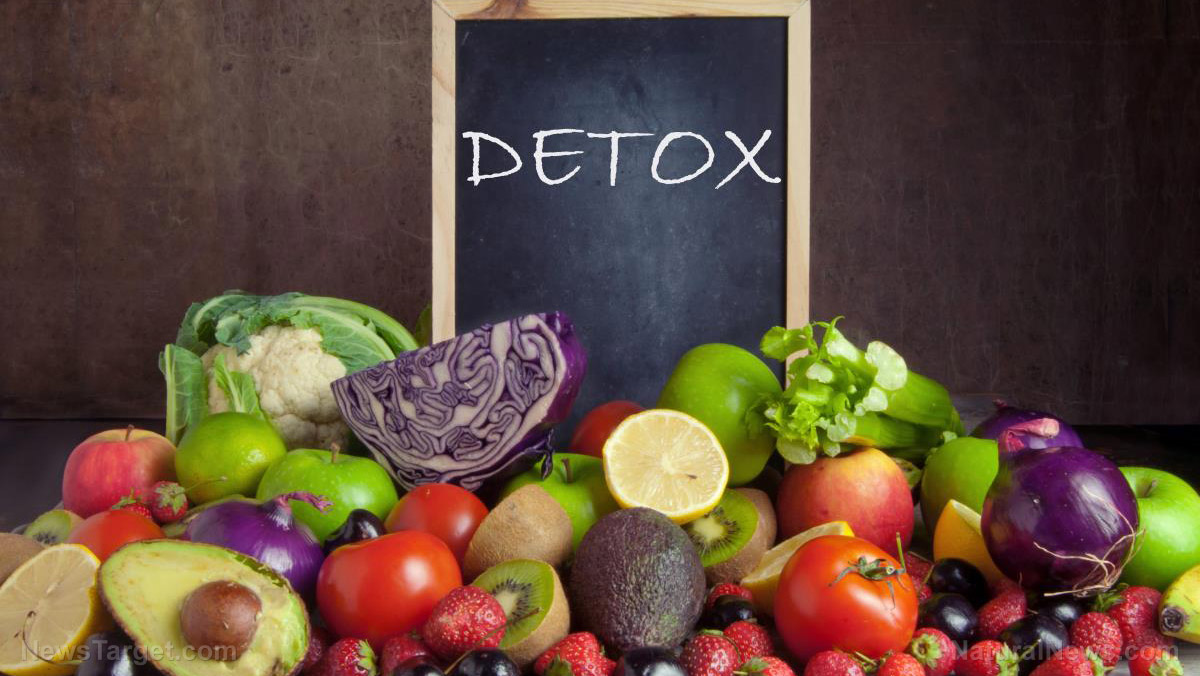Support brain health with lutein, a brain-boosting carotenoid
06/12/2023 / By Zoey Sky
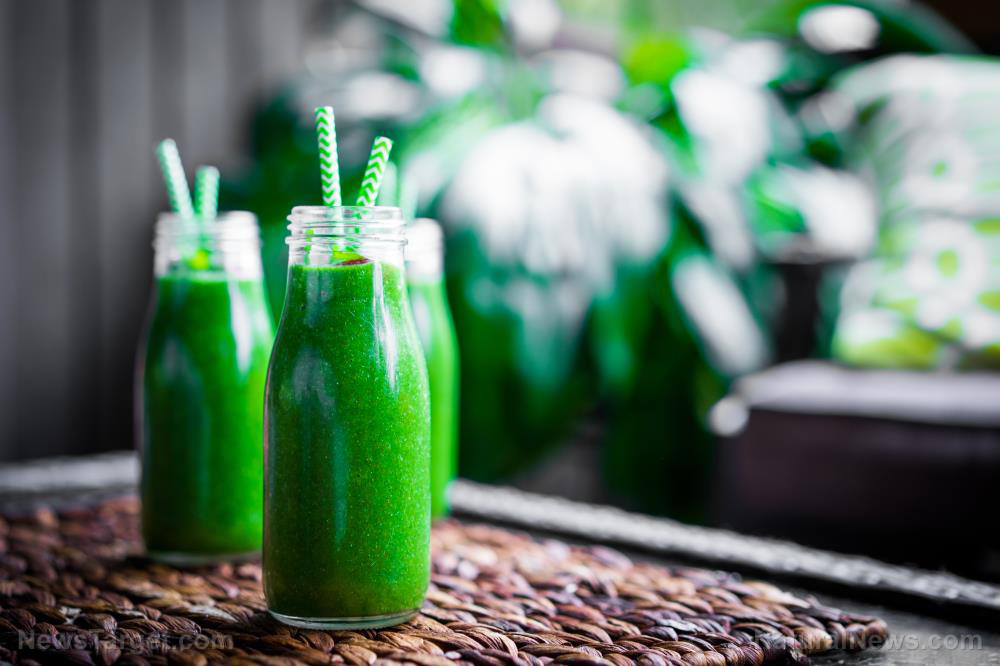
According to a study published in the journal Molecules, the carotenoid lutein can help boost brain health.
Lutein, a natural plant pigment responsible for the yellow, orange and red colors of various fruits and vegetables, has been found to support healthy cognitive function and help prevent cognitive decline.
Lutein could be key to protecting against Alzheimer’s
According to the Centers for Disease Control and Prevention (CDC), one in every nine Americans older than 45 is affected by cognitive decline. This age-related condition is characterized by gradual impairments in a person’s ability to learn, reason, focus and remember. Cognitive decline can also manifest as an early sign of Alzheimer’s disease.
The Molecules study highlights the potential of lutein to address that issue.
For the review, the researchers analyzed different randomized, placebo-controlled trials involving volunteers who received either dietary or supplementary lutein.
Next, the research team assessed the effect of lutein in three areas:
- Memory
- Complex attention (which involves sustained attention, selective attention and processing speed)
- Executive function (which is important for planning, decision-making, reasoning and responding to feedback)
The researchers discovered that lutein supplementation caused “modest improvements” in all three areas. They also cited several studies that found “significant improvements” in executive function.
Although most improvements overall were slight, the researchers highlighted one significant finding: The groups given a placebo did not see improvements in their cognitive abilities. Instead, they experienced a substantial decline during the study. This points to the benefits of lutein for the brain – especially for older adults.
Higher lutein levels linked to improved cognitive function
The researchers highlighted several mechanisms that could explain the health-promoting effects of lutein.
Specifically, they found that lutein has both antioxidant and anti-inflammatory effects, which allow the carotenoid to reduce oxidative stress and activate anti-inflammatory pathways.
Data also showed that lutein helped increase blood flow to the brain while enhancing neural response. (Related: Choline: An essential nutrient for brain and heart health.)
The promising research findings suggest that lutein can help protect against cognitive decline.
In another study published in the Journal of Alzheimer’s Disease, researchers discovered that taking a daily supplement of 10 mg of lutein, along with other carotenoids, was effective at improving memory within one year.
Lutein protects against age-related eye diseases
Lutein naturally accumulates in your brain and retina. It is known to contribute to macular pigment optical density, which is crucial if you want to prevent eye diseases. Increased macular pigment optical density has also been linked to better cognitive function.
Research suggests that lutein, especially when accompanied by zeaxanthin, another beneficial carotenoid, can help reduce the risk of cataracts and slow the progression of age-related macular degeneration (AMD).
Lutein is also effective at helping filter harmful ultraviolet rays and blue light, which is why some researchers call it “sunscreen for the eyes.”
Incorporating superfoods with lutein into a balanced diet
Lutein is an essential nutrient, meaning your body is unable to produce this carotenoid. You can only obtain lutein from plant-based foods and supplements.
While there is no recommended dietary intake of lutein, it’s generally considered to be safe, even when taken in high amounts. The Food and Drug Administration (FDA) classifies it as Generally Regarded as Safe (GRAS).
It’s estimated that many Americans consume only around one to two milligrams (mg) of lutein each day. But studies suggest that you may need a higher intake of lutein to reduce your risk of developing AMD.
Taking 10 mg of lutein and two mg of zeaxanthin supplements has been reported to slow the progression of AMD. Researchers observed no negative side effects with this dosage, except for minor yellowing of the skin.
The Council for Responsible Nutrition also confirms that a daily dose of up to 20 mg of lutein is safe for the body.
Different vegetables provide healthy doses of lutein. The following leafy green vegetables contain the highest amount of dietary lutein:
Lutein can also be found in other foods, such as:
- Corn
- Durum wheat
- Egg yolks
- Einkorn wheat
- Pistachios
- Red pepper
Lutein is absorbed best when consumed with fats because low-density lipoproteins are the main transport vehicles for lutein in your body.
You can try pairing lutein-rich vegetables with healthy fats such as EPA and DHA, the omega-3 fatty acids found in wild-caught fish.
Avocado, a superfood that contains beneficial monounsaturated fat and lutein, is also a great food for maintaining healthy lutein levels. Egg yolks are similarly full of good fats and lutein.
While dietary consumption is the best way to get more lutein, you can also boost your lutein intake by taking dietary supplements.
Lutein supplements are usually sourced from marigold flowers and mixed with oils, but they can also be made synthetically.
For your safety and in order to maximize its benefits, consult with a natural health provider before taking lutein supplements.
Other healthy habits that boost brain health
Other healthy habits can help preserve brain health, such as exercising regularly, getting enough sleep and eating a balanced diet.
Researchers from Harvard Medical School say that the Mediterranean diet, which prioritizes nutritious fruits, vegetables, beans, nuts, olive oil and moderate amounts of fish, poultry and dairy products, is linked to lower rates of cognitive decline and dementia.
Research also suggests that meaningful social engagement and mental stimulation through activities like reading, writing or puzzle-solving, can help boost cognitive health.
Follow a balanced diet and eat nutritious foods rich in the carotenoid lutein to support your brain health and vision.
Visit Phytonutrients.news to learn more about lutein and other essential nutrients.
Watch the video below to know more about MCT oil and how it can help support a healthy brain and heart function.
This video is from the Health Ranger Store channel on Brighteon.com.
More related stories:
Consume foods rich in omega-3s to support brain and heart health.
Brain food: Nutrient therapy can help address mental health issues.
Carrot carotenoids found to enhance and protect eye health.
Sources include:
Submit a correction >>
Tagged Under:
alternative medicine, brain function, brain health, carotenoids, cognitive decline, cognitive health, food cures, food is medicine, functional food, lutein, natural cures, natural health, nutrition, prevention, research
This article may contain statements that reflect the opinion of the author
RECENT NEWS & ARTICLES
AgingSecrets.News is a fact-based public education website published by Aging Secrets News Features, LLC.
All content copyright © 2018 by Aging Secrets News Features, LLC.
Contact Us with Tips or Corrections
All trademarks, registered trademarks and servicemarks mentioned on this site are the property of their respective owners.

